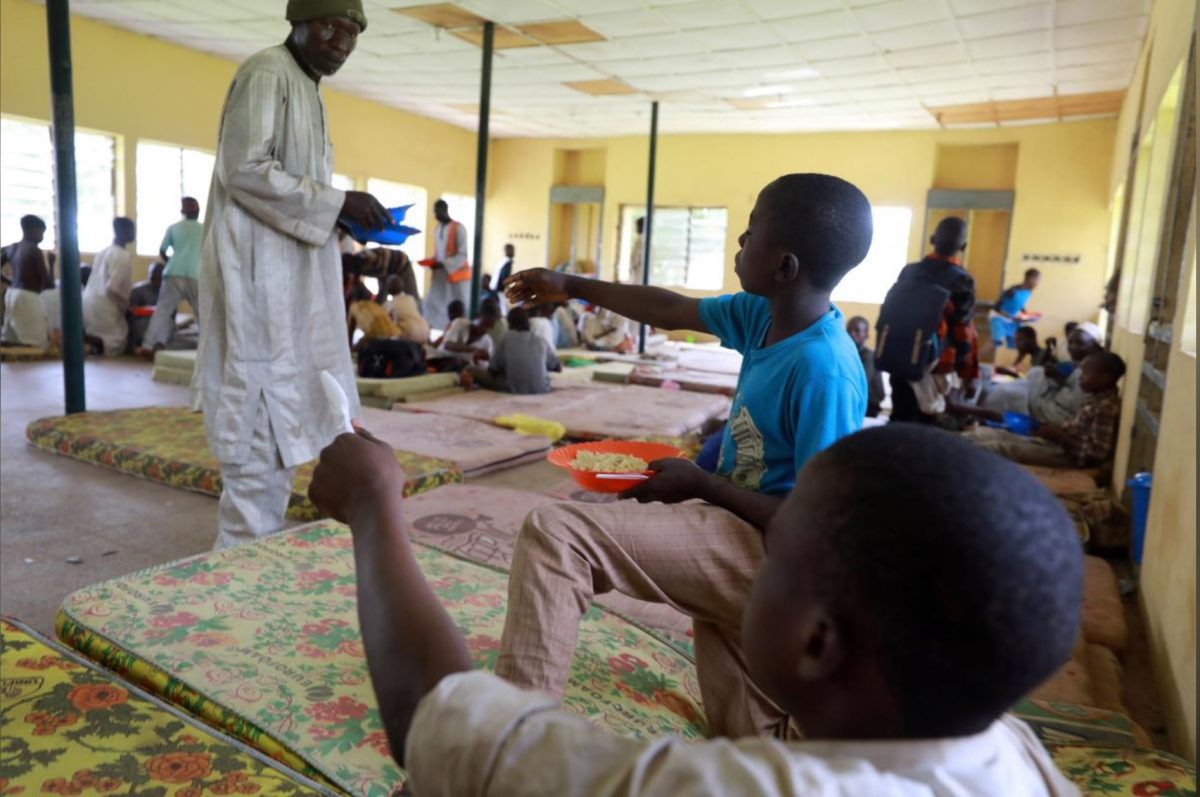KADUNA, Nigeria (Reuters) – Nigerian authorities yesterday scrambled to find the families of hundreds of men and boys freed from a purported school where some had been kept in chains, tortured and allegedly sexually abused.
Police freed as many as 400 males aged from six to 50 from the house in Kaduna in northern Nigeria in a raid on Thursday. Some had been chained to radiators, tyres or hub caps, and others bore visible signs of scars from whippings and beatings.
More than a dozen, including 10 children, were hospitalised yesterday. All the adults were in critical condition, with one vomiting blood.
Police set up a makeshift camp for the others on the edge of the city and were trying to register the freed inmates. In one of the buildings at the camp, children queued to register their names against a list, later laughing and playing before being served a plate of noodles.
Outside, dozens of parents, faces contorted with worry, gathered to collect their children. Some had paid tuition fees to the men running the house believing it to be an Islamic school, while others viewed it as a correctional facility with no expectation of instruction.
Kaduna state police spokesman Yakubu Sabo said the “dehumanised treatment” they discovered made it impossible to consider the house an Islamic school.
Local media said some of the children had been tortured, starved and even sexually abused. Reuters was unable to immediately verify the reports.
Hafsat Mohammed Baba, the state’s commissioner of human services and social development, told Reuters a headcount had accounted for just 190 people, including 113 adults and 77 children. The reason for the discrepancy in numbers was not immediately clear, but authorities said some of those freed had immediately fled.
Police raided the site after a relative was denied access. Seven people who said they were teachers at the school were arrested.
Police called on families from across the region, from the suburbs of Kaduna to the nearby countries of Ghana, Mali and Burkina Faso, to collect the individuals. Despite reports of abuse, some were reluctant to return home with their family members.
FRESH WOUNDS
Nineteen-year-old Sani Shuaibu told Reuters he was “happy but hungry” as he ate a plate of spaghetti after being met at the camp by his elder sister and mother.
He spent three months at the building after being sent there by his family to alter his behaviour.
Civil servant Auwalu Sanni, who stood stony-faced beside his seven-year-old son, said: “I’m happy now that I have seen my son, but I’m not happy about how they treated him.”
Moments earlier, the child was smiling as he was reunited with his father, but his expression changed as he showed the fresh wounds on his left arm and legs that he said were the result of being struck with a plank of wood.
Mohammed Sani Abu Sha’aban, a father of 13 from the Kaduna suburb of Nasarawa, sent two of his sons – a 16-year-old and 25-year-old Jamilu – to the school for more than three years.
He paid 34,000 naira ($111) per term and said it had helped his sons, particularly Salim. “Now that they are set free, he may relapse into his past negative attitude of absconding from school and other vices,” Sha’aban said.
Islamic schools, known as Almajiris, are common across the mostly Muslim north of Nigeria. Widespread poverty prompts many parents to leave their children at the institutions, yet they have been dogged by reports of abuse and accusations that some children are forced to beg on the streets rather than get an education.
Some activists have called on the government to outlaw the schools.

